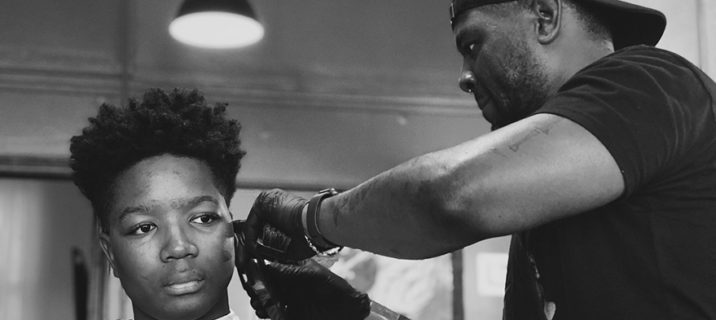I remember growing up and my father would give me a haircut in our basement. Other times, he would take me to the barbershop. Now some might ask why a father who could cut his own son’s hair would spend money at the barbershop. There was a reason. He wanted me to learn some things about life that I needed to hear from other members of our community.
The barbershop was a safe (learning) space for men of color. It was an environment where you could hear barbers, preachers and dudes on the block say “Hey, young brother, I feel you and know what you’re going through.” Those simple words of empathy and connection can mean a lot to a young man who feels as though the entire world is on his shoulders and no one has experienced what they have.
THE BARBERSHOP IN THE BLACK COMMUNITY IS VERY MUCH LIKE A SCHOOLHOUSE OF ALL MALE EDUCATORS
As an educator reflecting on the learning of my youth, the barbershop was one of the spaces in which I first engaged social emotional learning (SEL). Of course, at the time I didn’t recognize it via this academic language but as I look back I realize I learned about some of the core competencies I needed to be aware of as a young person. I learned about self and social awareness and how to manage my emotions as I navigated the social politics of our community.
Because of my experience in the barbershop, as a Black male educator, I understand my role is more then just counseling or delivering academic content but includes tangible and intangible SEL pieces that come with sharing relevant similarities and experiences. Engaging ideas of character and mindset, discrimination and disadvantage, as well as opportunity and optimism are a part of the process of culturally responsive SEL. Students are going to learn whether we teach them or not so its best if they learn from someone who demonstrates an academic, social and personal connection.
In the barbershop, I also learned about getting along with folks, not burning bridges, code switching—how in certain settings you could act or speak a certain way and other spaces you simply just didn’t. As I teach young men about their interactions with fellow students, teachers, and principals, they are learning the lifelong skills that will be useful in their communities as well as mainstream society.
Barbers are the perfect examples for establishing relationships and engaging their clients in such a way that makes them want to stay and chat long after the service has been performed. Along the walls of the barbershop you could see pictures of neighborhood success stories just as there are pictures of awesome students hanging in my office. A conversation I remembering hearing often was about decision-making. With anything, it was always stressed that we had a choice.
Activities around consequential thinking puts students in a position to explore the variety of choices conceptualizing the best and worst options. This type of self examination and introspective reflection allows these young men in my space to think about how they want to live their lives. This process is culturally relevant because I scaffold the information sharing scenarios that they can relate to which is a benefit of my presence in the schoolhouse. These are activities and experiences that build relationships for a lifetime.
IN SEL SESSIONS WE’RE ABLE TO REFLECT UPON OUR EXISTENCE AND THE RELATIONSHIPS NEEDED TO SUCCEED IN LIFE.
This is exactly what we strive for in our classrooms. In SEL sessions we’re able to reflect upon our existence and the relationships needed to succeed in life. Being able to highlight this as something learned in the barbershop is special to me as I now get to share this aspect of SEL with the young men responsible to my care.
Life “lessons” can come from anywhere and often times it can be a negative experience dependent upon the source. However, with an educator who understands the experiences of students and the community, SEL practice is a sure winner. SEL work allows me to teach these boys life skills in a way that they can understand them. It’s crucial to provide a space that teaches about overcoming barriers and managing emotions such as stress and anxiety. I’ve observed young men’s disengagement from learning occur because they can’t manage academics coupled with the complexity of decisions that occur at this stage in their lives.
The gap in access to SEL should be explored further as teen boys should never be without an opportunity to learn from the perspective of those who have been there. The barbershop is a great place to learn but more Black male educators in schools would be even better.


Recent Comments